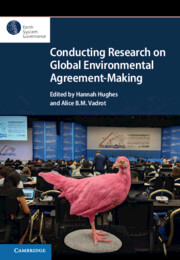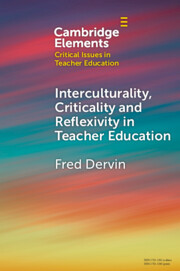90 results
Chapter 20 - Understanding Child Development: A Biosocial Anthropological Approach to Early Life
- from Section 5 - The Biosocial in Practice
-
-
- Book:
- The Handbook of DOHaD and Society
- Print publication:
- 27 June 2024, pp 231-240
-
- Chapter
-
- You have access
- Open access
- HTML
- Export citation
EVALUATION FUNCTIONS AND REFLEXIVITY OF BANACH SPACES OF HOLOMORPHIC FUNCTIONS
- Part of
-
- Journal:
- Journal of the Australian Mathematical Society , First View
- Published online by Cambridge University Press:
- 31 May 2024, pp. 1-14
-
- Article
- Export citation
Coming of age within ‘implosion’
-
- Journal:
- Review of International Studies / Volume 50 / Issue 3 / May 2024
- Published online by Cambridge University Press:
- 06 May 2024, pp. 441-456
- Print publication:
- May 2024
-
- Article
-
- You have access
- Open access
- HTML
- Export citation
Promises and perils of positionality statements
-
- Journal:
- Annual Review of Applied Linguistics , First View
- Published online by Cambridge University Press:
- 12 April 2024, pp. 1-8
-
- Article
-
- You have access
- Open access
- HTML
- Export citation
Transformative research for sustainability: characteristics, tensions, and moving forward
-
- Journal:
- Global Sustainability / Volume 7 / 2024
- Published online by Cambridge University Press:
- 11 April 2024, e14
-
- Article
-
- You have access
- Open access
- HTML
- Export citation
8 - Enter the Passive Agent
- from Part III - Agency
-
- Book:
- Morphogenesis Answers Its Critics
- Published online:
- 28 March 2024
- Print publication:
- 04 April 2024, pp 165-182
-
- Chapter
- Export citation

Morphogenesis Answers Its Critics
-
- Published online:
- 28 March 2024
- Print publication:
- 04 April 2024
8 - Theorizing Responsibly
-
- Book:
- The Time of Global Politics
- Published online:
- 23 November 2023
- Print publication:
- 07 December 2023, pp 234-262
-
- Chapter
- Export citation
5 - Pragmatic Constructivism and the Challenge of Global Governance
- from Part I
-
- Book:
- On Global Learning
- Published online:
- 07 September 2023
- Print publication:
- 21 September 2023, pp 128-154
-
- Chapter
- Export citation
6 - Crisis as Opportunities
-
- Book:
- Entrepreneurs in Contemporary China
- Published online:
- 24 August 2023
- Print publication:
- 07 September 2023, pp 119-142
-
- Chapter
- Export citation
15 - Conclusions
- from Part IV - Implementing and Adapting
-
-
- Book:
- Conducting Research on Global Environmental Agreement-Making
- Published online:
- 07 August 2023
- Print publication:
- 10 August 2023, pp 285-300
-
- Chapter
- Export citation
10 - Ethnography
- from Part III - Collecting and Analysing Data
-
-
- Book:
- Conducting Research on Global Environmental Agreement-Making
- Published online:
- 07 August 2023
- Print publication:
- 10 August 2023, pp 186-209
-
- Chapter
- Export citation

Conducting Research on Global Environmental Agreement-Making
-
- Published online:
- 07 August 2023
- Print publication:
- 10 August 2023
Actors, activities, and forms of authority in the IPCC
-
- Journal:
- Review of International Studies / Volume 50 / Issue 2 / March 2024
- Published online by Cambridge University Press:
- 13 June 2023, pp. 333-353
- Print publication:
- March 2024
-
- Article
-
- You have access
- Open access
- HTML
- Export citation
9 - Making the Ethical in Social Interaction
- from Part II - Aspects of Ethical Agency
-
-
- Book:
- The Cambridge Handbook for the Anthropology of Ethics
- Published online:
- 11 May 2023
- Print publication:
- 25 May 2023, pp 231-250
-
- Chapter
- Export citation
REFLEXIVITY INDEX OF THE PRODUCT OF SOME TOPOLOGICAL SPACES AND LATTICES
- Part of
-
- Journal:
- Bulletin of the Australian Mathematical Society / Volume 109 / Issue 2 / April 2024
- Published online by Cambridge University Press:
- 27 March 2023, pp. 376-387
- Print publication:
- April 2024
-
- Article
- Export citation
All we like sheep: The need for reflection and reflexivity in I-O psychology
-
- Journal:
- Industrial and Organizational Psychology / Volume 16 / Issue 1 / March 2023
- Published online by Cambridge University Press:
- 09 March 2023, pp. 77-95
-
- Article
- Export citation

Interculturality, Criticality and Reflexivity in Teacher Education
-
- Published online:
- 17 February 2023
- Print publication:
- 09 March 2023
-
- Element
- Export citation
2 - The Field
- from Part I - Theory and Ethnography
-
- Book:
- State-Building as Lawfare
- Published online:
- 02 February 2023
- Print publication:
- 09 February 2023, pp 59-96
-
- Chapter
- Export citation
Chapter 7 - Balzac’s Comic Pessimism
- from Part III - Optimism and Pessimism
-
- Book:
- Orientation in European Romanticism
- Published online:
- 13 October 2022
- Print publication:
- 20 October 2022, pp 157-193
-
- Chapter
- Export citation










